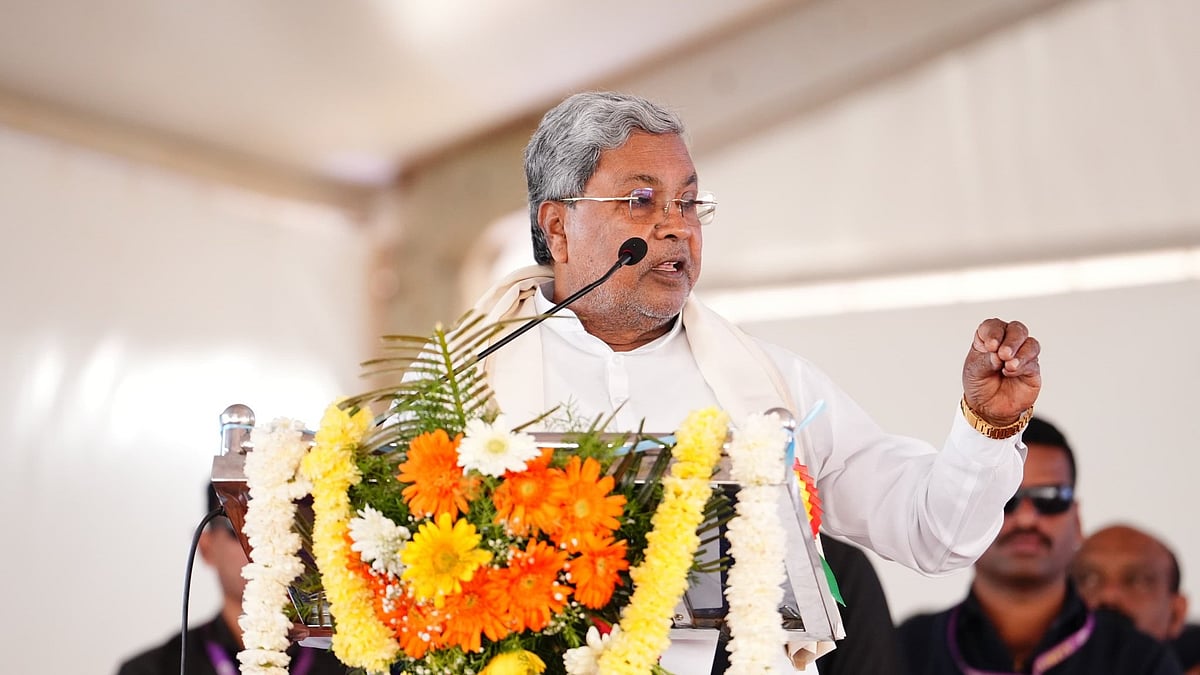In a packed auditorium, a musical is in progress. A young actor takes centre stage and performs a few moves of Kathakali, followed by rhythmic steps of Bharatnatyam, and Koodiyattam. For the next few minutes, the audience witnesses physical poetry that attempts to recreate the tragic tale of modern man’s craving for power. The presentation is amplified through the sounds of pakhawaj and classical ragas. And, while the performance is enthralling the audience, it takes a little imagination to realise that the goings on the stage are an adaptation of William Shakespeare’s renowned play Macbeth, but with an Indian twist.
It was the 100th show of veteran theatre director Manish Mitra’s play Macbeth Badya, which attempts to portray the celebrated work with the help of traditional art forms. “Shakespeare’s plays are relevant and flexible. Doesn’t matter where and when they were written, each of his plays can be adapted into any language and folk form because they still make sense. I wanted to adapt the play in the Indian context mixed with Indian folk forms,” says Manish. The dramatist has travelled to more than 16 countries to stage this play.
Shakespeare and India
In India, Shakespeare travelled from pages to stages across the country and then to screens. His work was first introduced in schools by the British. Gradually, the Bard entered Indian theatre, beginning with Kolkata and moving across cities and villages. Interestingly, each language in India absorbed Shakespeare’s fascinating work and transformed it into India’s popular culture.
For instance, Ajeet Singh Palawat’s directorial Kasumal Sapno is an adaptation of Shakespeare’s early writings Midsummer Night’s Dream. With the intrinsic Rajasthani art of Kathputli (string puppet theatre), and vibrant hues reflecting the colours and passion of the desert land, Ajeet’s play is a stroke of genius. The play portrays the adventure of four young lovers not in Athens (the location of the play) but in an imaginative fort called Amorgarh in Rajasthan. The interactions between woodland fairies and a duke and duchess are replaced with a handsome fairy puppet king, a weaver, magic, jungle sprites and elves.

Hamlet the Clown Prince |
The presentation is elevated with several performative art forms juxtaposed with the extinct folk form of Rajasthan, nakal and virah geet (separation song) of Langa-Manganiyar musicians — creating an innovative performance style. “Shakespeare’s text provides immense freedom of experimenting. You can adapt his plays in any language, culture and demography,” says Ajeet, a National School of Drama alumnus.
West meets East
In Mumbai (erstwhile Bombay), the permeation of Shakespeare occurred with English troupes in 1770. During 1868, Parsi companies started performing Shakespeare’s plays following the footsteps of the Oriental Theatre Company. About nearly two centuries later, the colonial hangover from Shakespeare’s plays seems to have dissolved. Veteran theatre director Habib Tanvir was one of the first dramatists from India to adapt Shakespeare play Midsummer Night’s Dream in Indian theatre with Kaamdeo Ka Apna Basant Ritu Ka Sapna. He adapted the play into Chhattisgarh’s Nacha theatre form. Noted theatre personality B.V Karanth is credited with creating Shakespeare’s Macbeth with the traditional Yakshagana dance-drama form of Karnataka.
“These theatre directors have been pioneers of creating Shakespeare’s magic on stage using Indian folk forms. Their adaptations have been brilliant so much so that Shakespeare appears to have set his play plot in India. His writing style is unique and has written on diverse topics like tragedy, comedy, satire, and social dramas which are still relevant. Moreover, there’s no other writer of his time who gave so much diversity and liberty in the text for adaptation,” says noted theatre director and NSD alumnus Rajendra Panchal. He also shares that most of the films by Japanese filmmaker Akira Kurosawa were based on Shakespeare’s plays. “He adapted the text so well that you start feeling Shakespeare was Japanese. That’s the beauty of his text and the directors who have adapted his work,” he adds.
Making Shakespeare relevant
Celebrated theatre director Roysten Abel adapted Shakespeare’s Othello and made it into Othello: A Play in Black and White 24 years ago. Actor Adil Hussain and veteran theatre actor and director Barry John performed in the play. Roysten took Shakespeare’s Othello and placed it in a company of actors with Kathakali-trained actor Adil Hussain playing the protagonist. His play goes a step further than the text and takes a peek into the lives of the actors who are busy with the rehearsals of Othello.

Piya Behrupiya |
Here, the actors interact in real time over a play like Othello and gradually the lines between stage and real life blur. Jealousy, revenge, love, and lust take over the actors as Othello creeps into their lives on stage.
“I think Shakespeare is the best playwright for actors. He is the only writer who has been able to create a language for actors. He wrote for bad actors so even if the actor is bad and if he speaks the lines the way they are written, the scene would come out,” says Roysten and adds that Shakespeare challenges the directors. “There’s so much to do with his writing and can be placed anywhere in any situation,” he says.
Once terrified of Shakespeare, Mumbai-based award-winning theatre director Atul Kumar has delightfully adapted Twelfth Night as Piya Behrupiya in nautanki style. Atul also adapted Midsummer Night’s Dream as Khwaab-Sa in 2017. Noted film and theatre actor and director Rajat Kapoor has reinvented three major tragedies of Shakespeare — Macbeth, Hamlet, and King Lear — and the pastoral comedy, As You Like It.
Veteran theatre director Ratan Thiyam has adapted Macbeth beautifully for stage using Manipuri folk forms elevated with live music and extravagant set and lights.
“Shakespeare’s long and pervasive influence on dramatic activities in the nineteenth century resulted in widespread adaptations and translation of his plays. To make the borrowing more acceptable to a wide variety of audience, the plays were Indianised to a large extent by adding songs and dances,” writes Pooman Trivedi in her book, India’s Shakespeare: Translation, Interpretation and Performance.










